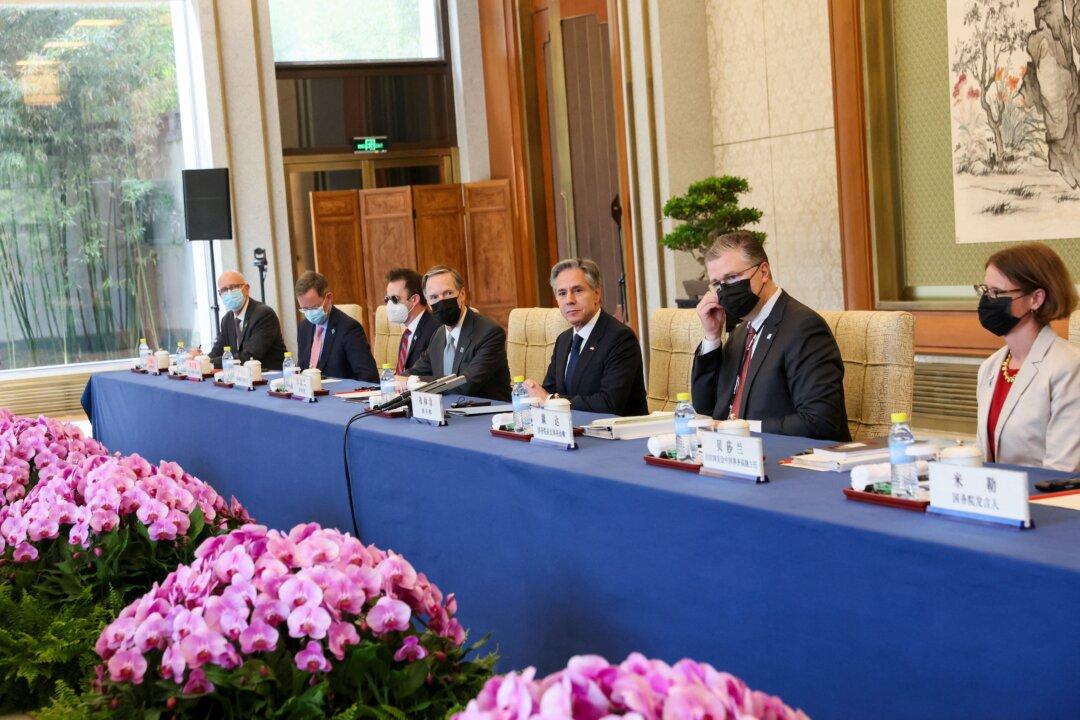U.S. Secretary of State Antony Blinken on Sunday kicked off two days of high-stakes diplomatic talks in Beijing after months of urging by the Biden administration for the Chinese Communist Party (CCP) to reestablish normal bilateral communications.
Blinken opened his program by meeting Chinese Foreign Minister Qin Gang for an extended discussion to be followed by a working dinner. He’ll have additional talks with Qin, as well as China’s top diplomat Wang Yi and possibly Chinese leader Xi Jinping, on Monday.




